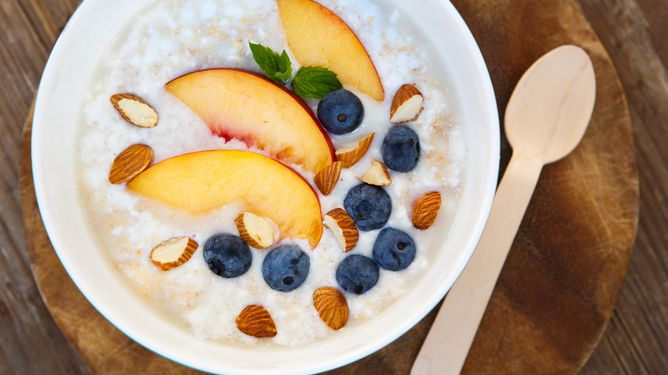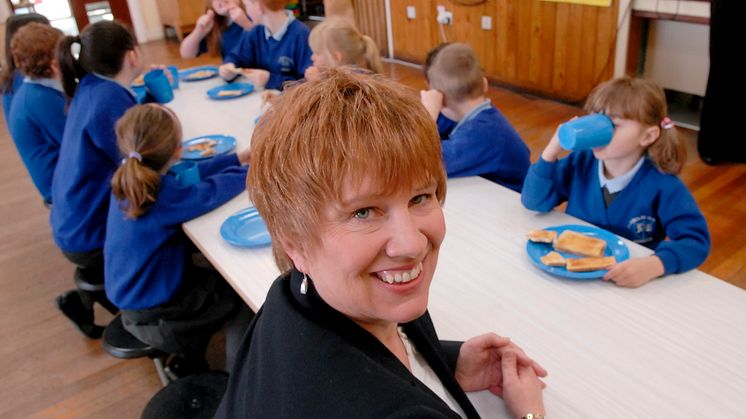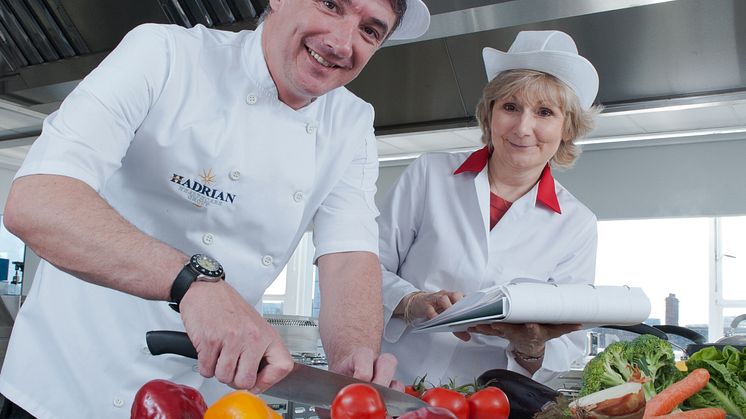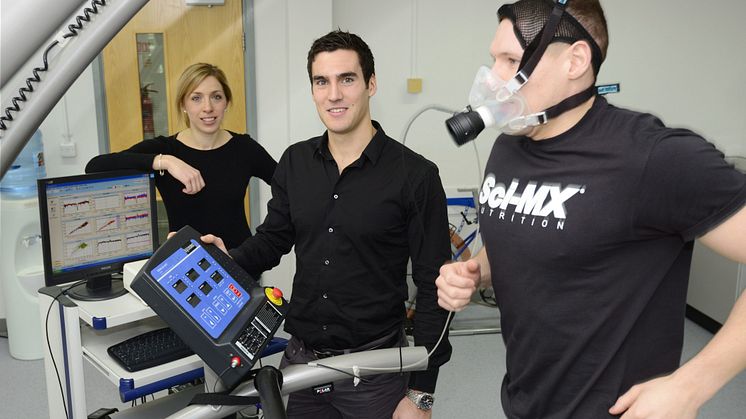
Press release -
COMMENT: Does the food children eat for breakfast fuel exam grades?
Pam L Graham, Senior Research Assistant in Health and Life Sciences, discusses how a good breakfast influences how we think and learn.
We don’t have to look far to find information on the benefits of eating a healthy, balanced diet. Good eating habits, like regularly having breakfast and eating fruit and vegetables, have been linked to positive outcomes for our bodies. But how does food influence how we think?
A recent US study showed that giving free school breakfast to poorer students can lead to improvements in maths, reading and science. These improvements were related to better eating habits and didn’t happen as a result of more time spent in school. The findings of the study support other research, which has also found a link betweengood nutrition and improvements in school grades.
Why nutrition makes a difference
Cognition, which is the way we think about, remember and use information, is an important part of learning. For example, to learn skills such as reading and maths we need to be able to pay attention to certain facts, hold thoughts in our memory and switch between different pieces of information. Research has shown that food,especially breakfast, can influence how well we are able to perform these cognitive tasks.
In a 2012 UK study of 1,386 children aged between six and 16, those who had breakfast performed better on tests of memory and attention than those who didn’t have breakfast.
But, further research has shown that what we eat is also important. For example, the glycaemic index of food, which shows how quickly the carbohydrates from foods are used up by the body, has been found to have an effect on cognitive performance. When children eat foods with a low glycaemic index, such as bran flakes, which release energy more slowly, their attention and memory performance is better than when they eat high glycaemic foods, such as chocolate-coated cereal.
When it comes to school grades, some researchers have suggested that memory and attention are especiallyimportant for learning and these are cognitive processes that seem to be influenced by food intake.
Mixed results

A mixed bowl. Fruity cereal via Tootles/www.shutterstock.com
But the relationship between food and performance is not straightforward. In a 2014 study carried out by myself and my colleagues of a free school breakfast scheme in the UK, some school staff believed that having breakfast at school led children to be able to concentrate better in class but other staff had noticed no difference. Similarly, not all studies have found an effect of food on cognitive performance and school grades.
In a 2012 study, children’s cognitive performance was measured after breakfast and no breakfast. Results showed that skipping breakfast didn’t have an impact on how well children did at the cognitive tasks. All the children who took part in the study normally ate breakfast – so one day of breakfast skipping might not be enough to have an impact on children’s cognitive performance.
However, a separate study has shown that for children who are already poorly nourished, skipping one day of breakfast can lead to poorer cognitive performance. This shows that the effect of having breakfast or not on cognitive performance could depend on how well-nourished children are already.
In terms of school grades, studies have also found mixed results. A 2002 US study found improvements in children’s nutrition six months after the introduction of universal free school breakfast. These improvements were related to better maths grades but made no difference to reading, social studies and science scores. School breakfast was also recently reported to have no effect on children’s literacy and numeracy scores.
So, another factor that might influence whether food helps children’s school grades is the type of task that children are being asked to complete. This idea is supported by the findings of studies showing that breakfast might help children to perform better in more difficult tasks.
Something to chew over
The link between food and school grades is complicated. When thinking about how food might make a difference to children’s school performance it’s important to look in detail at a range of factors like what children are eating, their usual food habits and the type of task they have to complete.
It’s not just a simple case that feeding children will make them do better at school; but evidence shows that school food schemes might help, especially for poorer children. This is promising for those working hard to help children get the best results from their time at school, but it also leaves us with much more to think about.
School food offered during term time is only available to children for around three quarters of the year leavingmany families struggling to eat a balanced diet during the school holidays. This leaves us with questions about how children’s food habits at different times of the year might influence how well they do at school and whether better food habits during the school holidays might help to reduce summer learning loss.
Categories
Northumbria is a research-rich, business-focussed, professional university with a global reputation for academic excellence. To find out more about our courses go towww.northumbria.ac.uk
If you have a media enquiry please contact our Media and Communications team at media.communications@northumbria.ac.uk or call 0191 227 4571.












